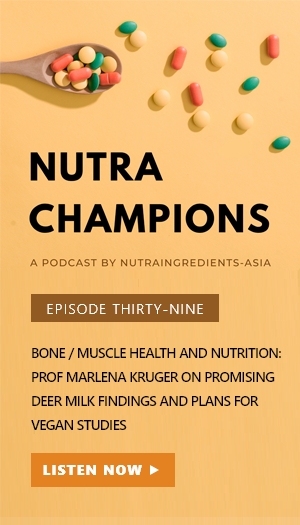Prebiotics boost beneficial bacteria for pregnant women and infants, conferring long-term benefits

An international team of researchers conducted a double-blinded, randomized, placebo-controlled trial of women who were given galacto-oligosaccharides and fructo-oligosaccharides (GOS and FOS), ingested daily from <21 weeks' gestation to six months’ post-partum. GOS and FOS are soluble fibers known for maintaining a healthy gut ecosystem by promoting the growth of commensal bacteria such as Bifidobacterium.
In this study, beneficial Bifidobacteria were significantly more abundant in the prebiotic group, both during and after pregnancy.
“Improving maternal gut health in pregnancy and lactation is a potential strategy to improve immune and metabolic health in offspring and curtail the rising rates of inflammatory diseases linked to alterations in gut microbiota,” the researchers wrote.
Study details
The participants were placed in one of two groups: One group received 14.2 g per day of prebiotic powder (GOS and FOS) and the other received a placebo powder consisting of 8.7 g per day of maltodextrin. The scientists collected stool samples several times from 74 mother–infant pairs. The researchers assessed the fecal microbiota of both mother and infants on the analysis of bacterial 16S rRNA gene (V4 region) sequences and short chain fatty acid (SCFA) concentrations in stool.
The researchers noted significant differences in the maternal microbiota at baseline and during 28-weeks’ or 36-weeks’ gestation in the prebiotic supplemented women. Additionally, infant microbial beta-diversity significantly differed between prebiotic and placebo groups at 12-months of age. Supplementation increased the abundance of commensal Bifidobacteria in the maternal microbiota and reduced the abundance of Negativicutes in both maternal and infant microbiota. There were also changes in SCFA concentrations with maternal prebiotics supplementation, including significant differences in acetic acid concentration between intervention and control groups from 20 to 28-weeks’ gestation.
“These results build on our understanding of the importance of maternal diet during pregnancy and indicate that it is possible to intervene and modify the development of the infant microbiome by dietary modulation of the maternal gut microbiome,” the researchers stated.
The scientists also suggested that long-term follow-up of the study’s infants will show whether prebiotic intervention decreased the prevalence of childhood allergic diseases and clarify how early-life microbiome structure and function might impact childhood disease development.
Gut microbial diversity
Loss of key microbial species, specifically in the gut, is associated with the global increase of noncommunicable diseases by disrupting immune and metabolic regulation throughout life, the researchers noted. This includes the effects on diet in the maternal and infant microbiome during and after pregnancy.
This continual expansion and diversification of the gut community is a necessary step that will ideally lead to a relatively stable adult microbiome. Moreover, once maturation of the microbiome has begun at approximately five months of age, reduced diversity in the infant microbiome is attributed to higher incidence of allergy, whereas increased diversity is more often associated with healthy outcomes.
However, it may be that the low diversity among initial gut colonizers (Bacteroides and Bifidobacteria) that carry out evolutionarily evolved processes may need a certain period to establish a benefit for immune system development inside the host, the scientists claimed.
“While exposure to microbes in the environment is protective and necessary, potentially a rapid premature colonization of more adult associated microbes may disrupt this critical process,” the researchers wrote. “The maternal prebiotic supplement may therefore assist in the migration of commensal microbes during pregnancy and breastfeeding by supporting the health of the maternal gut during this time.”
Source: Clinical Nutrition
doi: doi.org/10.1016/j.clnu.2024.02.030
“Maternal prebiotic supplementation during pregnancy and lactation modifies the microbiome and short chain fatty acid profile of both mother and infant”
Authors: Jacquelyn M. Jones et al.
















